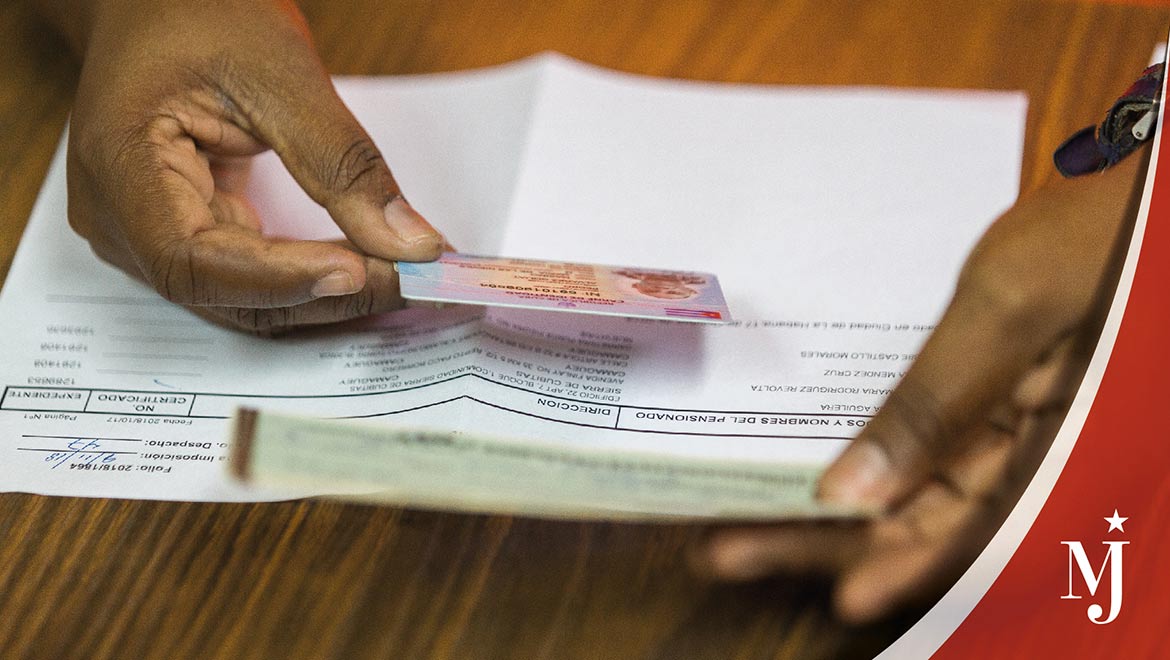Compensation Fund: To Comply with Civil Liability
- Written by Yenny Torres
- Published in Holguin
- Hits: 11111

Created on April 4, 1936 and attached to the Ministry of Justice in 1953, the Compensation Fund (CR) is the entity responsible for enforcing civil liability. It has authority to perform all possible actions against the sanctioned (debtors), in order to make them pay the debt; as well as deliver that income to the injured parties (creditors); that is, a mediating role.
According to Katherine Sardon Echarri, vice president of the Provincial Court: “Civil liability applies to those who affect another person, with damage to their property, bodily integrity, have been disabled, to a minor when one of their parents has been killed... The sanctioning court makes an assessment of how much is affected. Set the figure. The value is provided by expert opinion, and the statement of the injured is heard, as established in the Criminal Procedure Law, article 149. In accordance with the appraisal of the stolen property, the amount to be indemnified is set”.
Although the data is operational, because people are sanctioned daily, according to Yanet Laguna Ibañez, the CR's main specialist in the province, there are approximately 21,900 debtors in Holguin. In general, the number of creditors doubles or triples, since the same individual, in a robbery with continuous character to three or four houses, for example, is a single debtor who has to compensate several people.
The compensation fund operates at national level, with offices in each province. Three years ago the local newspaper !ahora! addressed this issue. At that time, what was collected in the province and deposited in the Central Bank was greater than the amount granted to the territory to pay. Currently the situation has been reversed. So far this year of the one million 120 thousand pesos plan, only 77 percent has been collected and they have paid more than 900 thousand pesos.
During 2015 and 2016, operations were carried out together with the PNR, the homes were visited, according to the list of debtors, who were charged less than one thousand or two thousand pesos, immediately and totally, and those of greater amount, payment agreements were made.
Nelson Plutin, provincial director of Justice, explained: “For a period, the State suppressed the debtor's civil liability with its budget, many creditors received the money without the debtor having paid, but in the end the person causing the prejudice must compensate to the CR”.
For various reasons, the CR for years has presented problems. Today, there are still pending charges for victims of until 2008.
In the prisons where the correctional work with internment is implemented, the inmates receive salary for their labor and are deducted 10 percent of the earned in the month; however, by the “Monthly Report of the Result of the Offices with the Penitentiary Establishments” it is known that only 25.6 percent of the criminal population with civil responsibility works.
Sometimes, low income and percent discount slow down the process. However, when assessing debt balance opportunities, in cases of penalties for theft, for example, it is worth asking: what did the individual do with the stolen goods?
“It is difficult for us to charge them. Out of prison they work with state entities. They are not allowed to work with individuals. Salaries are generally low because they work in communal areas... and we are currently making agreements for 250 to 500 pesos a month. As long as the debtor settles the debt, the check is claimed to Havana and the affected party is paid. With the fund of the box, due to the revenue collected, we want to pay this year from 2010 to 2013,”said Laguna Ibañez.
According to the personnel in charge of the activity, Holguin is the worst province in terms of income, the one that collects the least money taking into account the amount of debtors that it has and what should be collected.
Although there are agreements and enforcement judges that control, the fact that the box does not have viable mechanisms, of greater demand to the debtor to pay, affects the collection of civil liability and payment to creditors. Because stealing or scamming cannot be business, Courts, Prisons, Police, Justice and CR establish agreements to raise more money.
Recently, as a result of these meetings among entities, it was agreed to establish collaboration agreements with the PNR to carry out systematic operations for the location and capture of debtors.
Civil liability without liquidated constitutes a criminal record, which prevents working in places that require exemption from such records; nor does it allow travel outside of Cuba.
The Constitution of the Republic, in its articles 94 and 151, establishes that people have the right to obtain compensation for material and moral damages and compensation for the damages they receive and that the sentences and other final decisions of the courts are mandatory compliance.
To try to solve the problem, several measures are taken. Plutin reported that the bank is implementing a new computer system to facilitate the collection of debtors' files and process the information to the central bank, which will facilitate payment to creditors. In addition, “norms that oblige the Court and other competent bodies are being renewed by updating and approving the Criminal Code and the Law of Procedure to definitively establish the channels of demand and collection to debtors, currently established in Article 70 of Law 62 ”, Sardon Echarri explained.
Managers announced the approval of indications, effective as of September. This is the case of Instruction No. 246 of December 28, 2018, which states that all natural persons who owe legal entities and entities cannot collect, due to lack of collection mechanisms, can do so through the compensation fund. The money charged to that person goes to the bottom of the compensation fund to pay those people affected.
